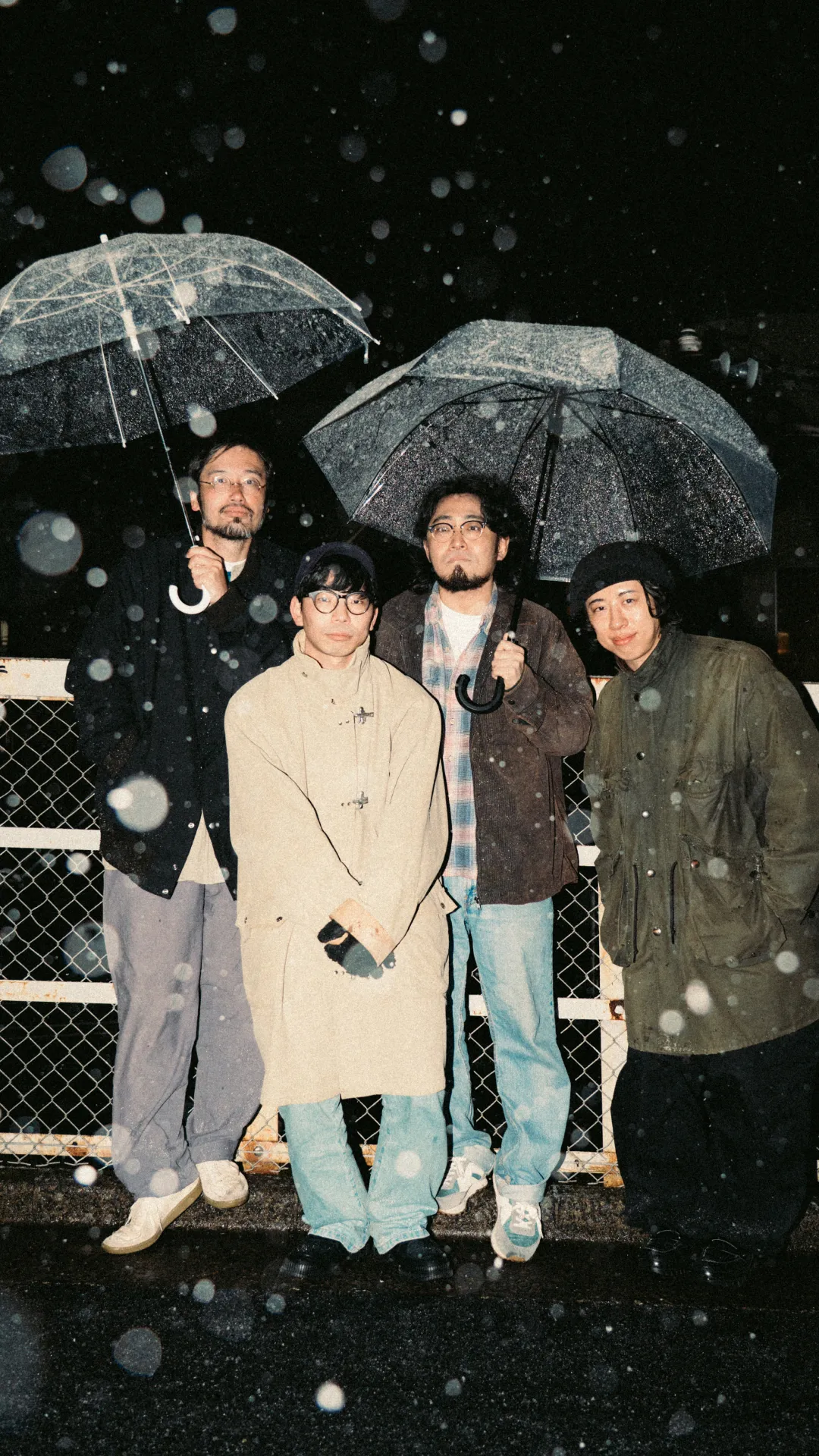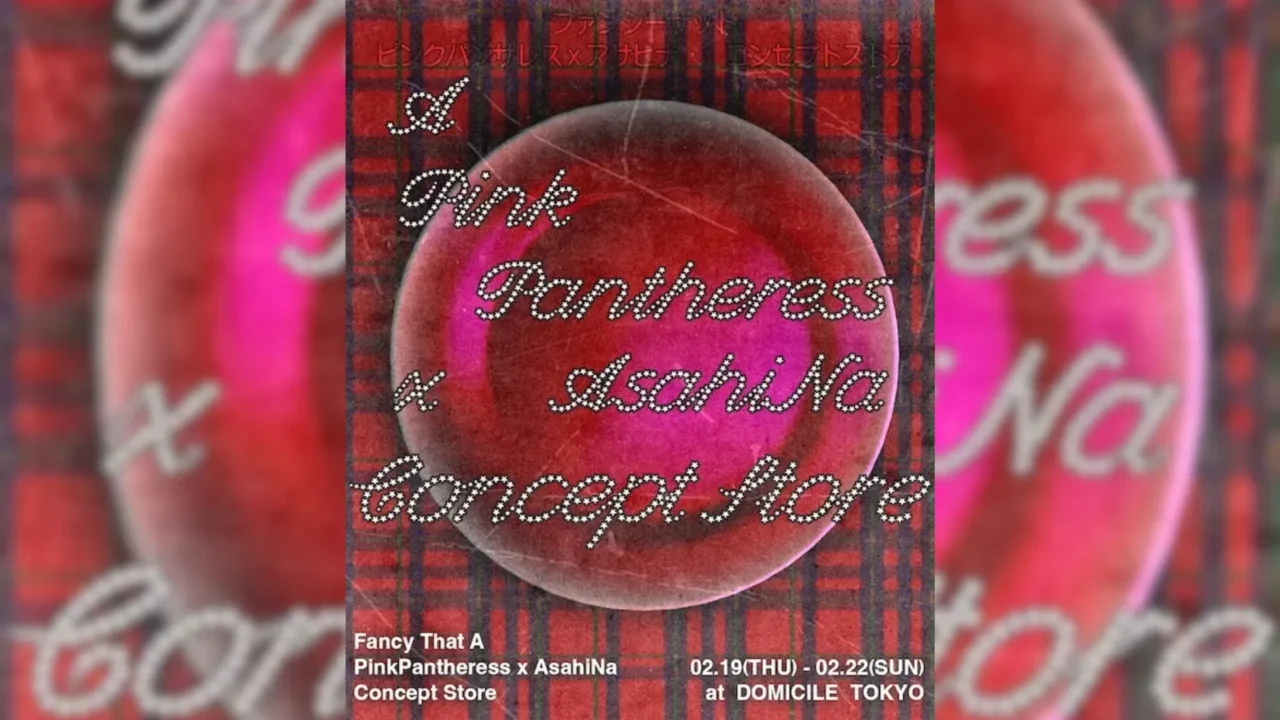Hailing from Hokkaido, ZOOKARADERU—a dynamic three-piece guitar rock band—celebrates their 10th anniversary this year. One of their iconic tracks, “Tomodachi no Uta (Friends Song),” has been a constant presence in their live performances since day one, and was recently released as a digital single on February 19th.
While the music video, set against a breathtaking snowy backdrop, makes a lasting impression, the story doesn’t end there. The song has sparked the creation of a short film titled Winter Morning (Fuyu no Asa), directed and written by the talented Rikiya Imaizumi, known for his works like Love, at Least and On the Edge of Town. This marks his return to original scripts since At the Window.
The film delves into the delicate and often unspoken dynamics between three complex characters—Tanebe (Shion Sasaki), Miho (Shion Naito), and Sakai (Taro Uchibori)—through raw performances and dialogue that captures both the humor and intensity of their relationships. At just 40 minutes, this work is infused with Imaizumi’s signature touch, expanding the emotional world of “Tomodachi no Uta” in ways that transcend its lyrics.
As ZOOKARADERU and Imaizumi sit down for a conversation, their discussion reveals the core of their creative minds, exploring human connections and the depths of artistic expression.
INDEX
Winter Morning: Imaizumi’s Signature Style in an Original Screenplay
How did Director Imaizumi get involved with this project?
Yoshida (Vo/Gt): To put it simply, we decided to take the bold step and approach him. We didn’t fully grasp the challenge, so we just thought, “Why not ask him?”
Yamagishi (Dr): It’s our 10th anniversary.
Washimi (Ba): I honestly thought, “There’s no way he’ll be available, he’s probably too busy” [laughs]. But “Tomodachi no Uta” is a track we’ve been performing live for years. There’s this image of us on stage facing the audience, and when the song is released, it’s no longer confined to just live shows – it starts connecting with all sorts of different scenes. So, when we heard that Director Imaizumi was going to turn “Tomodachi no Uta” into a film, we became really curious about what kind of human dynamics he’d depict.
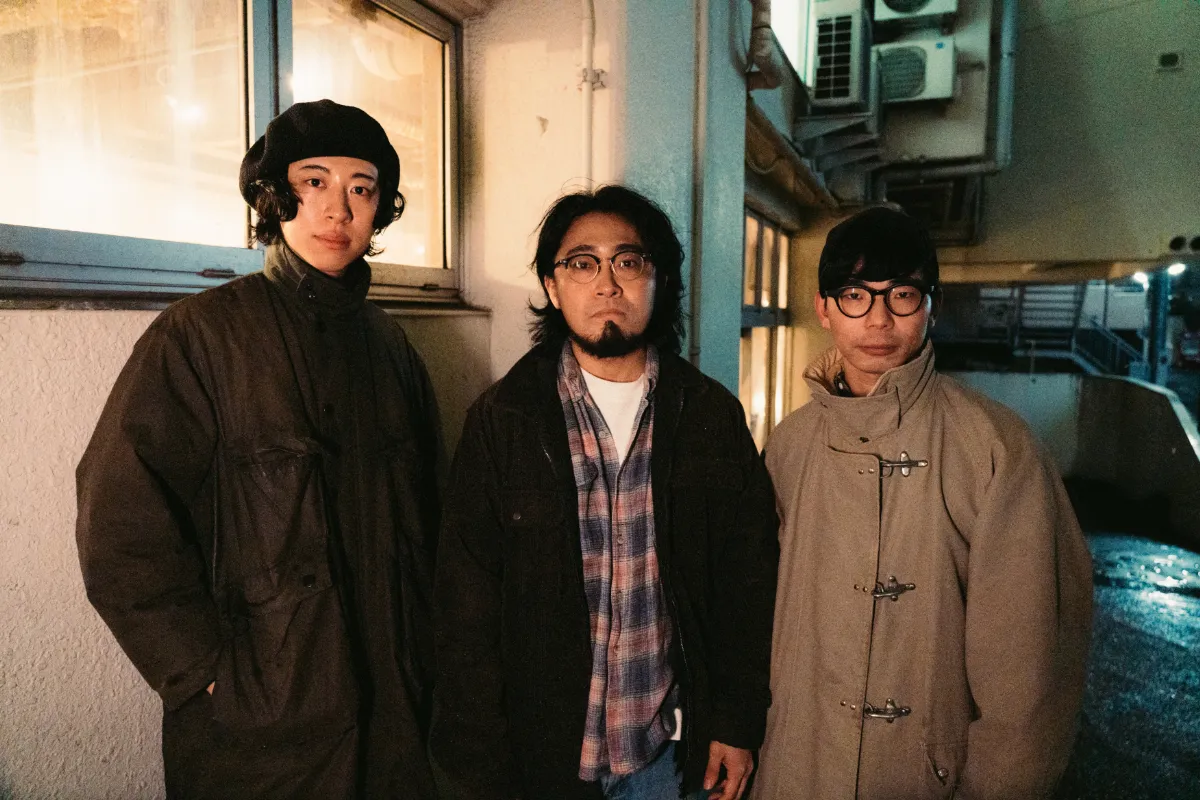
A three-piece rock band from Sapporo. Formed in 2015, they solidified their current lineup in March 2018, and will celebrate their 10th anniversary in 2025. They released the digital single “Tomodachi no Uta” on February 19.
Imaizumi: So that’s how it all came about. I got a message from the staff, but I couldn’t help wondering how my name even entered the conversation.
Was the request specifically for a film rather than a music video?
Imaizumi: Initially, they asked for a short film, around 15 minutes long. My daughter had introduced me to Zutto Mayonaka de Ii no ni., so I was familiar with their music, but I wasn’t sure if I was the right person for the job. But once I listened to the song, all sorts of ideas started flowing. Within a few days, I had a rough outline. The first thing that surfaced was a certain atmosphere—a mix of emotions, including a touch of pain—and I built the story from there.
This story really has Imaizumi’s signature touch.
Imaizumi: I felt that people caught in uncertain situations might find comfort in this song. The lyrics mention “one and one,” but I thought the story would resonate more if it involved three people instead of just two. As I explored that idea, it kept taking shape. Then, in our second meeting, they casually mentioned, “Oh, by the way, this song is actually about the relationship between a band and its audience at a live house” (laughs). By then, I had already written the script exactly how I wanted, so I started second-guessing things. If Tomodachi no Uta captured relationships in their purest form, Winter Morning might feel more muddled, a bit messier in comparison.
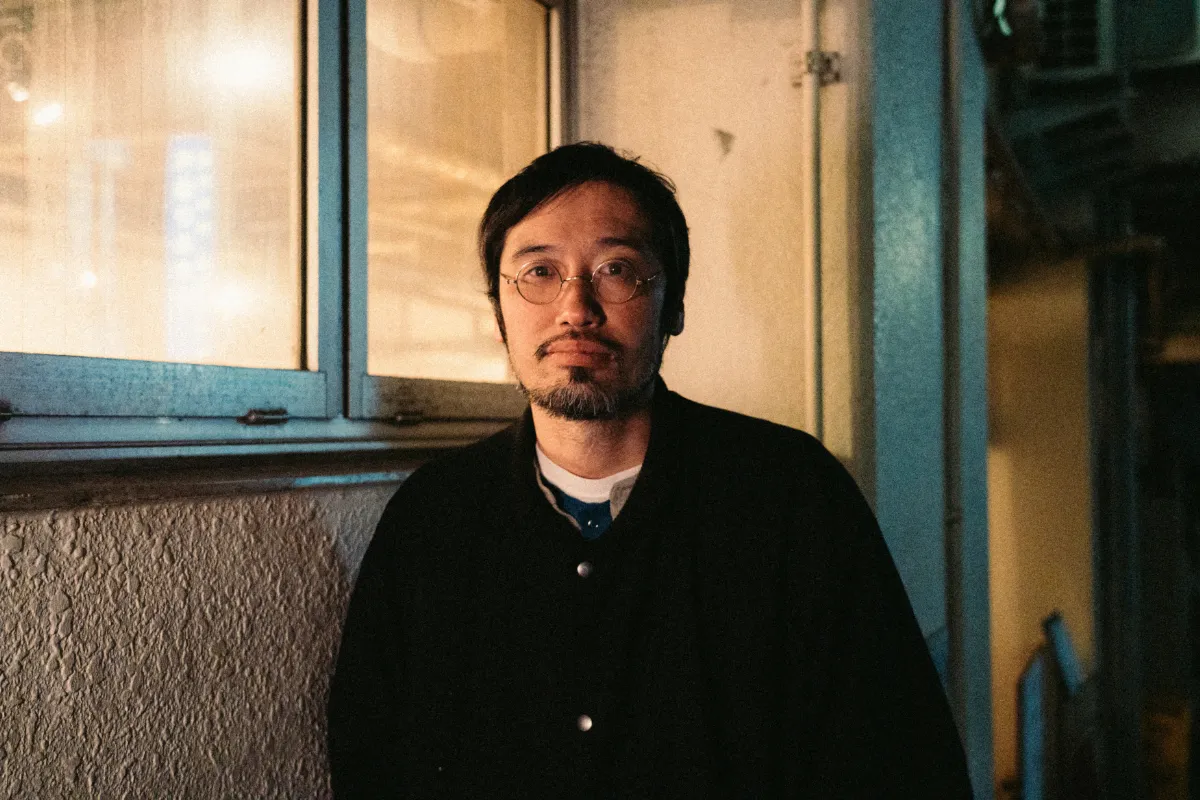
Born in 1981 in Fukushima Prefecture, Rikiya Imaizumi is a film director. He made his commercial film debut in 2010 with Tamano Eiga and has since released a series of acclaimed works, including Sad Tea (2014), Say Goodbye to the Days of Boredom (2017), Just Only Love (2019), Over the Town (2021), and Call Me Chihiro (2023). His latest film, Undercurrent, was released on October 6, 2023.
INDEX
On “Tomodachi no Uta“: “Every word in the song speaks to feelings we genuinely know.” (Imaizumi)
It sounds like you had some reservations, Imaizumi, but how did the members of Zutto Mayonaka de Ii no ni. react after seeing Winter Morning?
Yoshida: When performing this song, there’s a very specific scene in my mind—certain places and moments that help shape the track. But I never really considered the emotions of the people in that scene. I had always thought that the imagery I envisioned dictated how the people in it would feel. But after watching Winter Morning, I realized it might be the opposite—that the feelings people carry influence the environments around them. Maybe the “small cabin found after wandering in exhaustion” from the lyrics, or the izakaya and love hotel in Winter Morning, are just reflections of those emotions.
When a song is released, it inevitably opens up many new interpretations, but this experience felt like I had received the right answer right from the start, and that was really gratifying. Sorry if I sound a bit presumptuous.
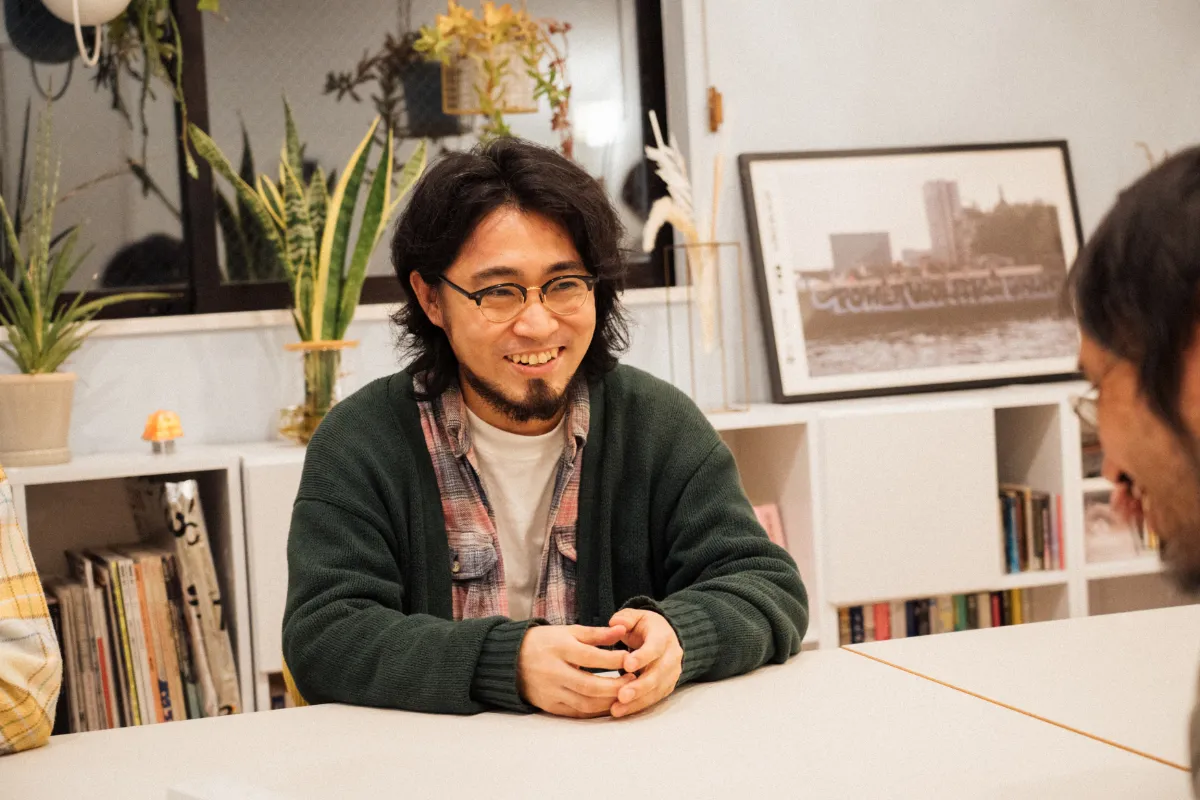
Imaizumi: No, no. Thank you.
Yoshida: One of the reasons I started making music was because I wanted to hear my own songs playing from someone else’s Walkman. Watching this, I was able to feel that meaning again. It’s like, “It’s my song, but it’s also your song.”
Imaizumi: Whether it’s music or film, I think it’s a good thing that people interpret them differently when they experience them. When it comes to making movies or dramas, I question the idea of universal empathy. Rather than everyone feeling the same way, I want to allow room for deeper, personal interpretations. For example, in a movie theater, the person sitting next to you might not understand it at all, but you might feel like you get it in a way that’s uniquely yours.
How did you feel, Wasumi?
Washimi: I thought it was interesting how I couldn’t quite figure out who the protagonist was. Instead of rooting for one particular person, it was more about asking myself, “What kind of person is this? How should I view them?” As I continued watching, my perception kept shifting.
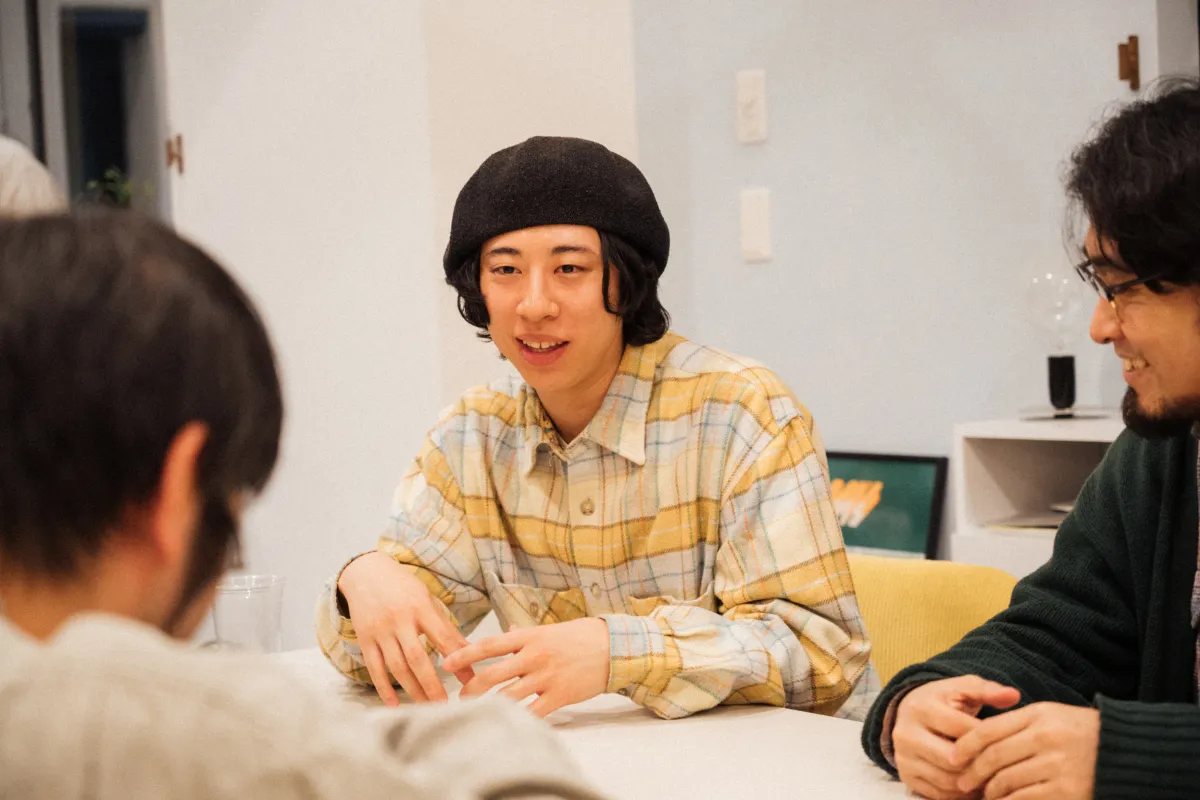
Imaizumi: I’m glad to hear that. I was intentional about the shift in the protagonist. In Winter Morning, “Tomodachi no Uta” plays twice. Originally, the script only had a scene where Miho and Tanabe are smoking, but on set, the cameraman suggested shooting the final scene in one continuous take. That’s when I thought, “This might be the moment to play the song.” During editing, I couldn’t decide between using the song in both places because both moments felt equally compelling. When it played in the final scene, it felt like the protagonist shifted in that instant. I think that’s how it is with one and one—depending on the situation, the other person in the song changes.
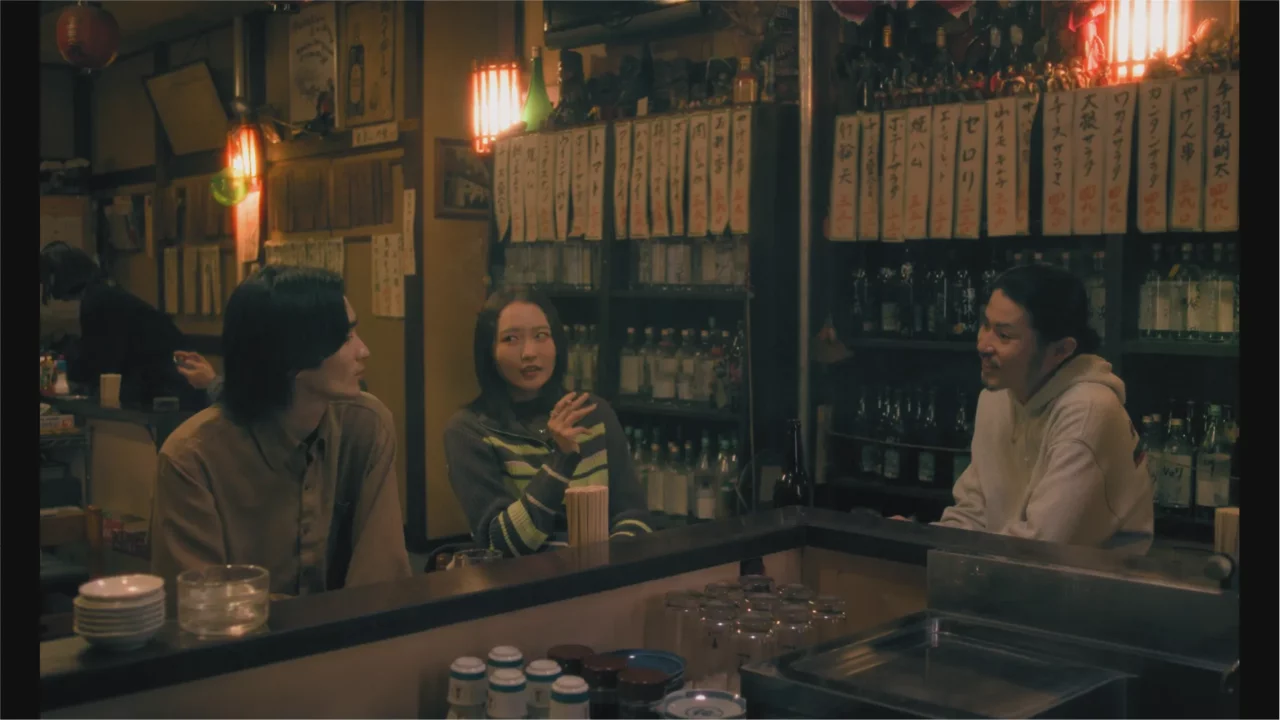
Yamagishi: I think the line at the beginning, where Miho and Tanabe discuss how “it’s impossible to express feelings with words,” serves as a central theme throughout the entire story. It’s not that it’s impossible to put feelings into words, but rather that once you do, they become trivialized. I felt like the three of them were experiencing that. It’s the same when you try to put your feelings about music into words.
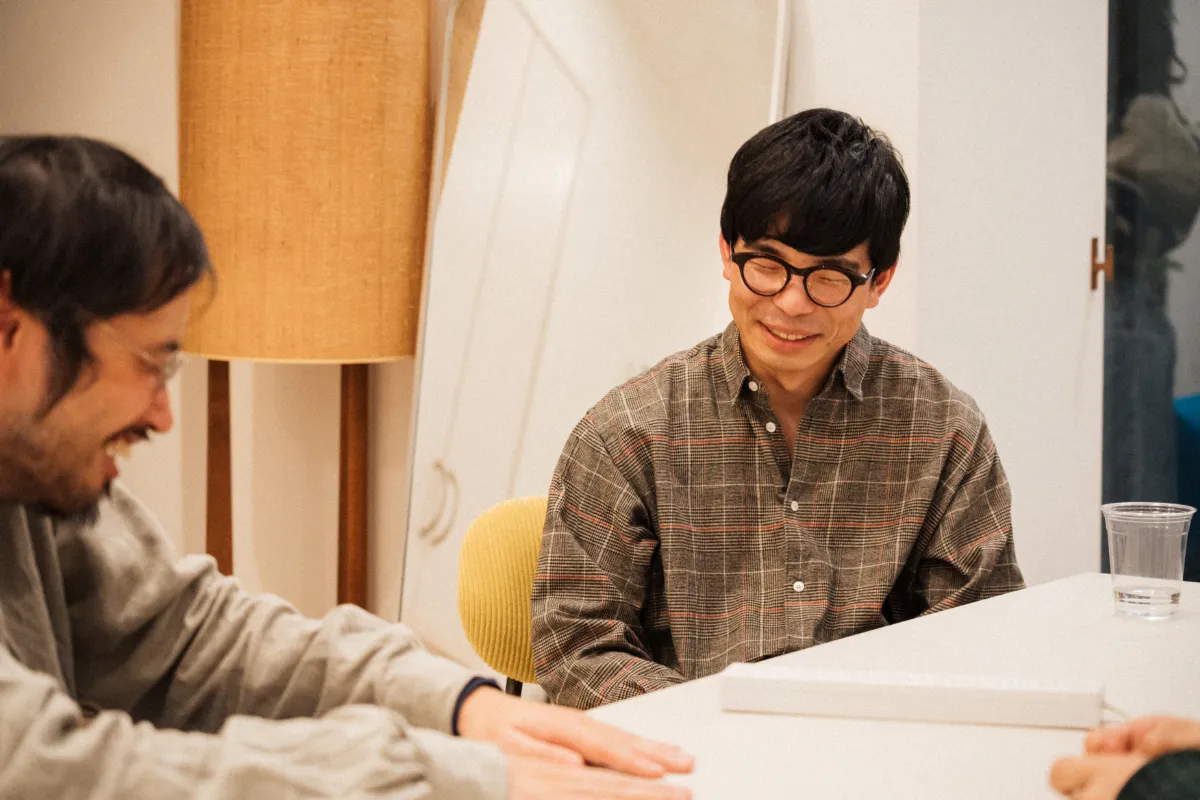
Imaizumi: When it comes to whether or not to explain things with words, I really feel that the lyrics of Tomodachi no Uta express the emotions of this film perfectly. I absolutely love the lyrics. It’s the same when I write dialogue—while I don’t use anything particularly special, I choose words from a variety of options that feel like the only words for the moment. The song is made up of words that only speak to feelings we truly understand. So when the song plays in a scene where the characters are just smoking without any dialogue, it feels like the lyrics flow through their hearts.
INDEX
The Core of the Relationship Between the Two Who Cross Paths by Chance
Imaizumi: By the way, was this song always meant to reflect the relationship between the band and the audience? I thought it was a straightforward love song. In fact, I even believed that the lyrics were based on your real-life romantic experiences, Yoshida. I’d like to think some fans are hearing it that way too [laughs].
Yoshida: I wrote this song before we even formed the band, during a time when I was performing solo. At that point, the dynamics of the relationship between a band and its audience weren’t reflected at all. It was more about me singing alone in a space, with the feeling that someone might occasionally pass by.
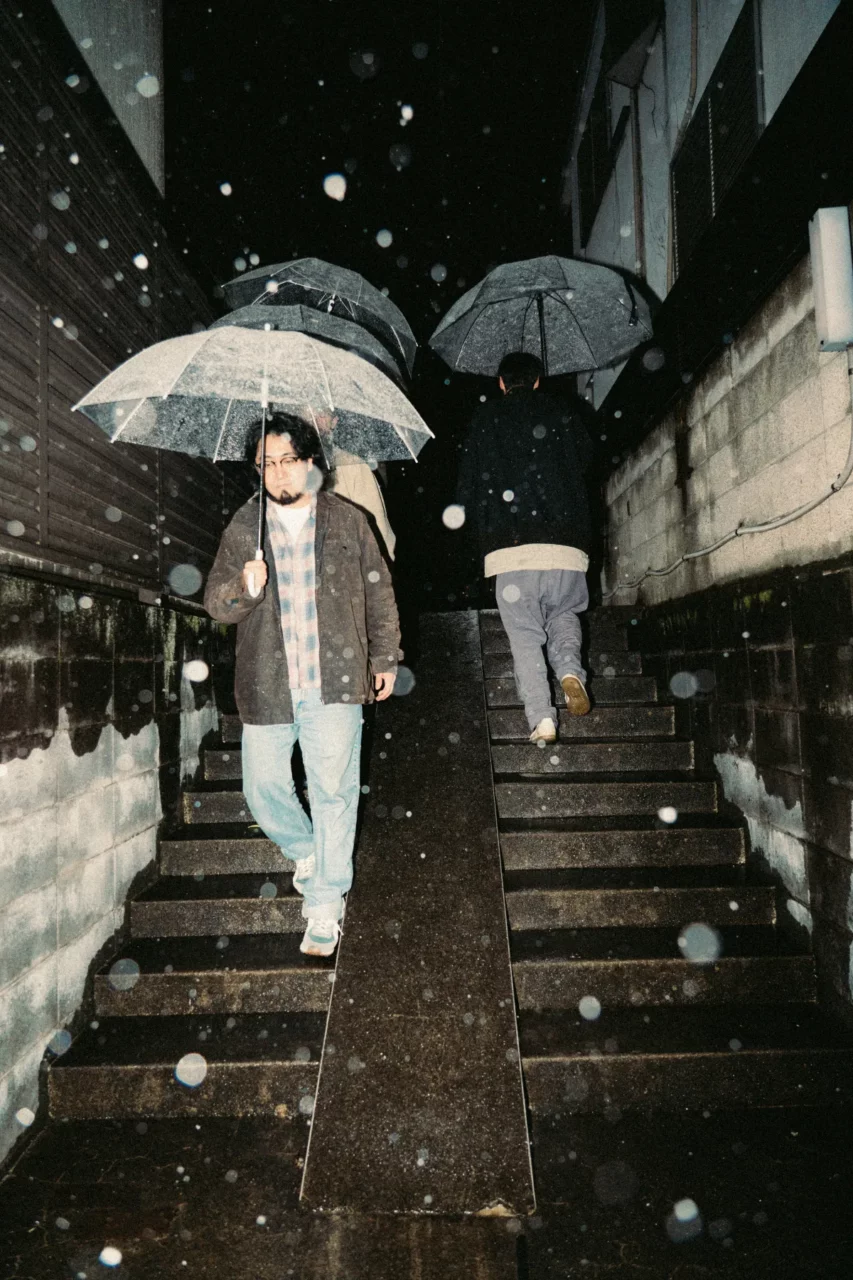
Imaizumi: I see! It really sounded like a very personal song. It’s not exactly an anthem to inspire everyone, right? The film Call Me Chihiro was created with that same attention to detail. Rather than Chihiro actively going out to help someone, it’s more about the way her conversations or gestures naturally make others feel better. In the same way, I felt this song helps people at a comfortable, soothing temperature.
Winter Morning revolves around the distance between people, doesn’t it? There’s a norm that “the closer the human relationship, the better,” but I think it’s also because of this desire for closeness that such inner turmoil arises. Tanabe, Miho, and Sakai each have different depths of connection they seek from each other, and they just can’t seem to find common ground.
Imaizumi: Exactly, even in the dialogue, Miho refers to Tanabe as a “friend.”
Washimi: She’s setting boundaries, isn’t she? [laughs]
I think what you’re saying is that there is a mutually supportive relationship that can exist because of the kind of distance mentioned in the lyrics, like the two who happen to cross paths—not seeking intimacy, but still forming a bond.
Imaizumi: It might have turned into an educational video about “let’s be careful with intimacy” [laughs]. The concept of “friendship” is difficult to define, isn’t it? With a lover, it often starts with the words “Will you go out with me?” but I’ve never said, “Will you be my friend?” I’ve always felt insecure about not having friends. Since I was a child, I’ve wanted at least one close friend, someone like a best friend. If the “friends” in this song refer to the audience of the band, then it’s a word with such broad meaning.
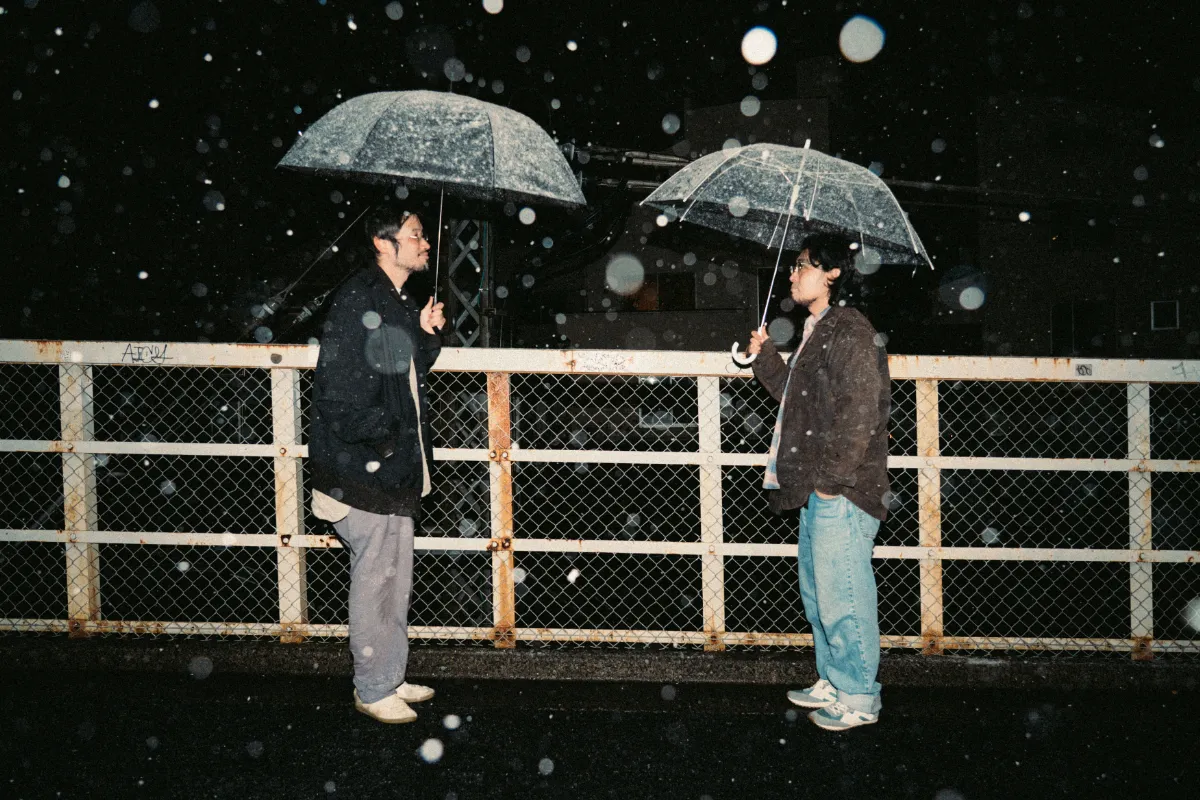
The relationship in Tomodachi no Uta feels much more detached than the usual idea of “friendship,” doesn’t it?
Yoshida: The title came last. I started making the song with just a hum, and when I thought of the line “When morning comes, we…” I naturally kept building the lyrics from there. Once it was finished and I started thinking about the title, it just felt like “friends.” It’s not like the kind of friendship you’d form by sitting next to someone in class, but when I asked myself, “What do we call this relationship?” it could only really be “friendship.” It’s almost like a statement of, “We’ll just call it friendship.”
The relationship between band members is also hard to define with a single term, right?
Imaizumi: Definitely. I wonder what the relationship between band members really is like.
Yoshida: It’s complicated. Especially in this band, we never had a time when we were just friends. We weren’t classmates or anything—since the very first meeting, we’ve always been band members.
Washimi: Our ages are different, and our backgrounds and experiences couldn’t be more different. I feel like I only truly got to know who they were after becoming a member.
Yoshida: I had been in another band with Yamagishi, so there was already some relationship there, but with Wasumi, I just thought he played interesting bass, so I asked him to join. If our personalities didn’t match, it would’ve ended right there.
Imaizumi: Do you three often go out drinking together?
Yoshida: Not really.
Washimi: But we spend an incredible amount of time together. We’re in the studio nearly every day, and whenever there’s free time, we want to work on music. People often call this “a family-like relationship,” but honestly, it’s nothing like a family.
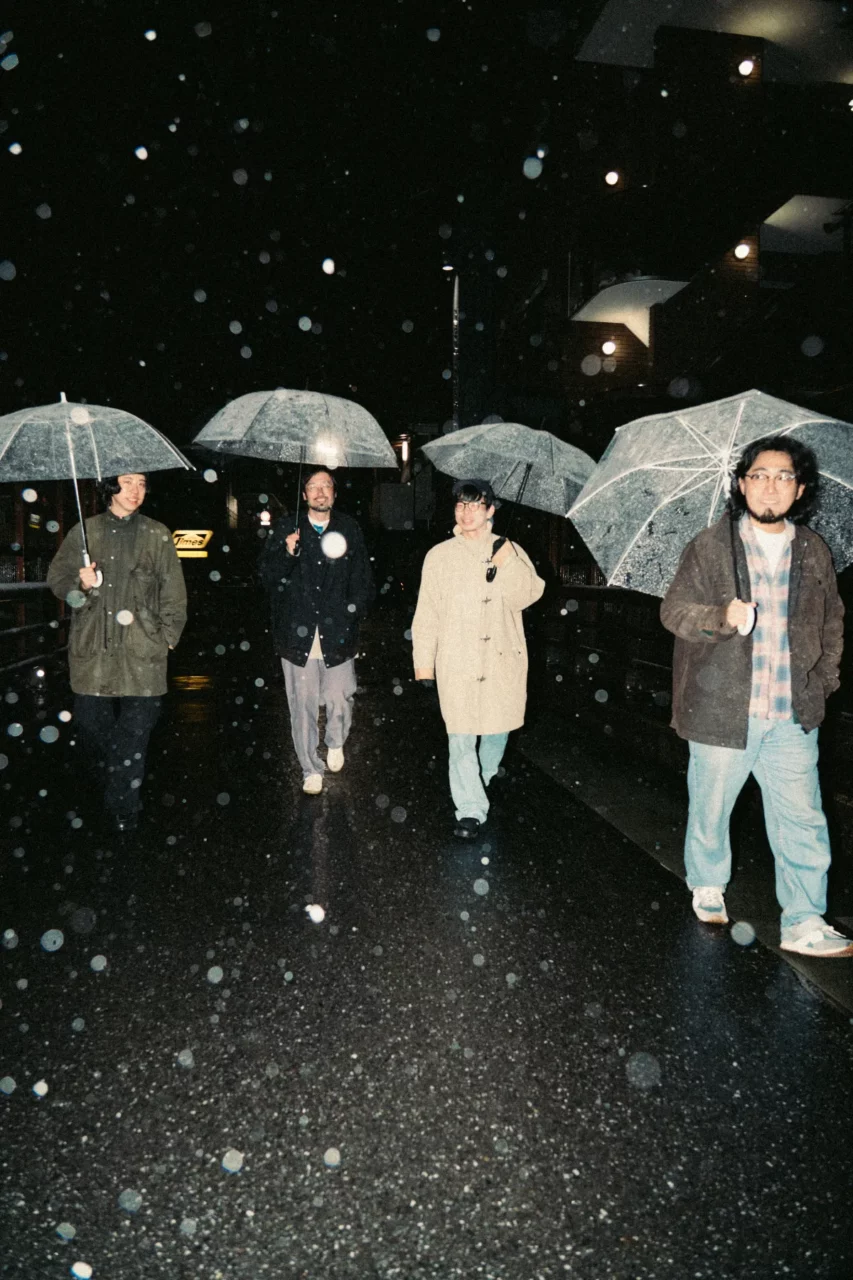
Imaizumi: It doesn’t quite have that warmth, does it? It’s not all that clingy. A lot of people use “family” in a positive way, but even that feels a bit questionable.
Washimi: Exactly. We’re not family, we’re not friends, and we’re not colleagues either. “Band members” is the term that feels the most right.
INDEX
The Comfortable Warmth of Yoshida’s Lyrics
Imaizumi: This is something I feel with every project, whether it’s a movie or a drama, but even with Winter Morning you perform a new song for the first time?
Yoshida: I don’t really worry about getting scolded or anything. But I do have this fear—what if the song we think is amazing doesn’t resonate with people? That’s definitely something I worry about, especially with songs we’ve really pushed ourselves to create.
Yamagishi: There’s always a bit of a disconnect between how we define “ZOOKARADERU’s style” and what the audience thinks it is. We never really know until we put something out there. Interestingly, it’s often the tracks where we’ve taken risks and pushed our boundaries that people say are the most “ZOOKARADERU.”
Imaizumi: That’s interesting! It sounds like the image of ZOOKARADERU the audience holds is even bigger than what you imagined! [laughs]
Washimi: A lot of people view Yoshida as almost a Buddha-like figure. It’s not a bad perspective, but those people are seeing a side of Zukadel that we, ourselves, don’t. And I find that pretty interesting.

Imaizumi: There are so many things I only realize after seeing how people react. I know some creators think about how the audience will interpret it, but honestly, I’m shocked by how little I think about it [laughs]. I don’t even put much thought into the character’s backstory.
When actors, who want to dive deeper into their characters, ask me questions, it really throws me off. There was this one time an older actor asked, “Has this character ever been married?” and I was like, “Uh, I’m not sure… maybe? Oh, if that’s the case, maybe they’d need a ring!” I totally panicked [laughs].
In Winter Morning, the character description for Sakai simply says, “Recently, he met Miho somewhere.”
Imaizumi: I’m grateful that this kind of approach is allowed [laughs]. This script is an original one, but I don’t think directors need to have every detail figured out. When people watch and ask questions, we come up with the answers together. It might sound a bit lofty, but I don’t view the characters as entirely imaginary beings. I don’t claim to know everything about them.
Yoshida: I thought you knew every single detail while making it, and it honestly scared me. Of course, I know the core of the work comes from you, but the level of detail is just incredible.
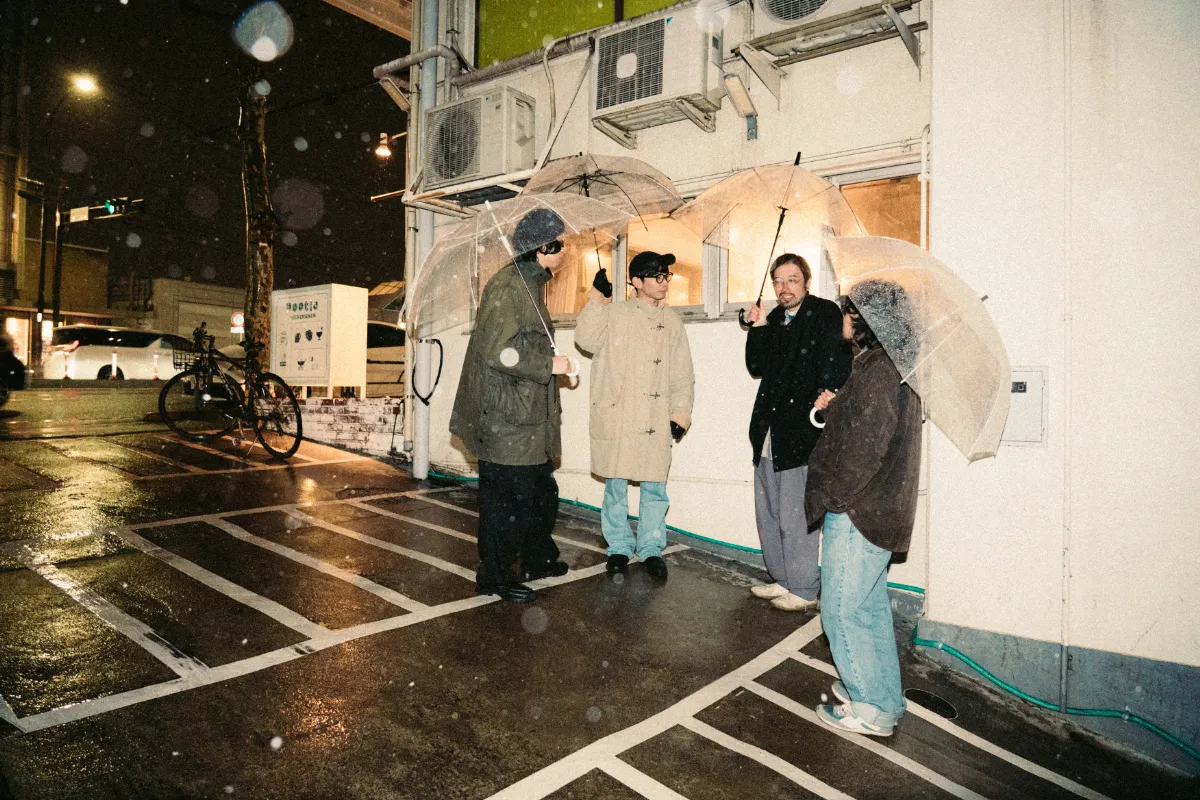
Imaizumi: Honestly, it’s not that extraordinary [laughs].
Yoshida: No, no, but now that I have a better grasp of the structure, I feel reassured. I at least understand the direction you’re taking with it.
Imaizumi: Your lyrics also carry this sense of openness, a kind of gentle ambiguity. I imagine that’s part of what makes them feel so warm. But they’re not abstract either. The focus isn’t on everyone, but on one person. That’s why, in “Tomodachi no Uta”, there’s this feeling of comfort and warmth.
It’s not about limiting the situation, but it’s not abstract either.
Imaizumi: Exactly. That’s probably why it evokes different images for each listener. For instance, there’s a line, “If I can’t laugh, I’ll sing a song,” which doesn’t desire everything. It connects to that idea we discussed earlier—about relationships that aren’t overly intimate but still meaningful—and that’s why it feels so soothing to listen to.
Yoshida: That really makes me happy. Thank you.
Winter Morning
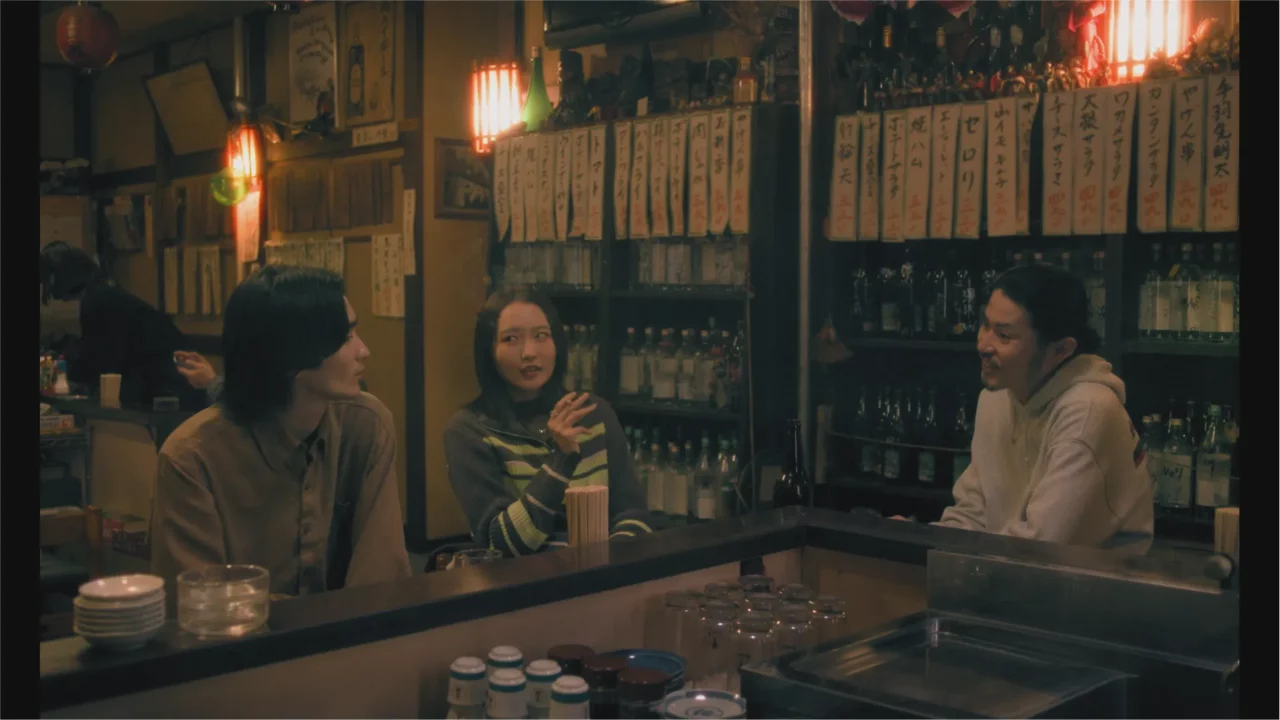
Director/Screenplay: Rikiya Imaizumi
Cast: Shion Sasaki / Shion Naito / Taro Uchibori
★The entire film is now available on ZOOKARADERU’s official YouTube channel for a limited time!
ZOOKARADERU Digital Single ”Tomodachi no Uta”
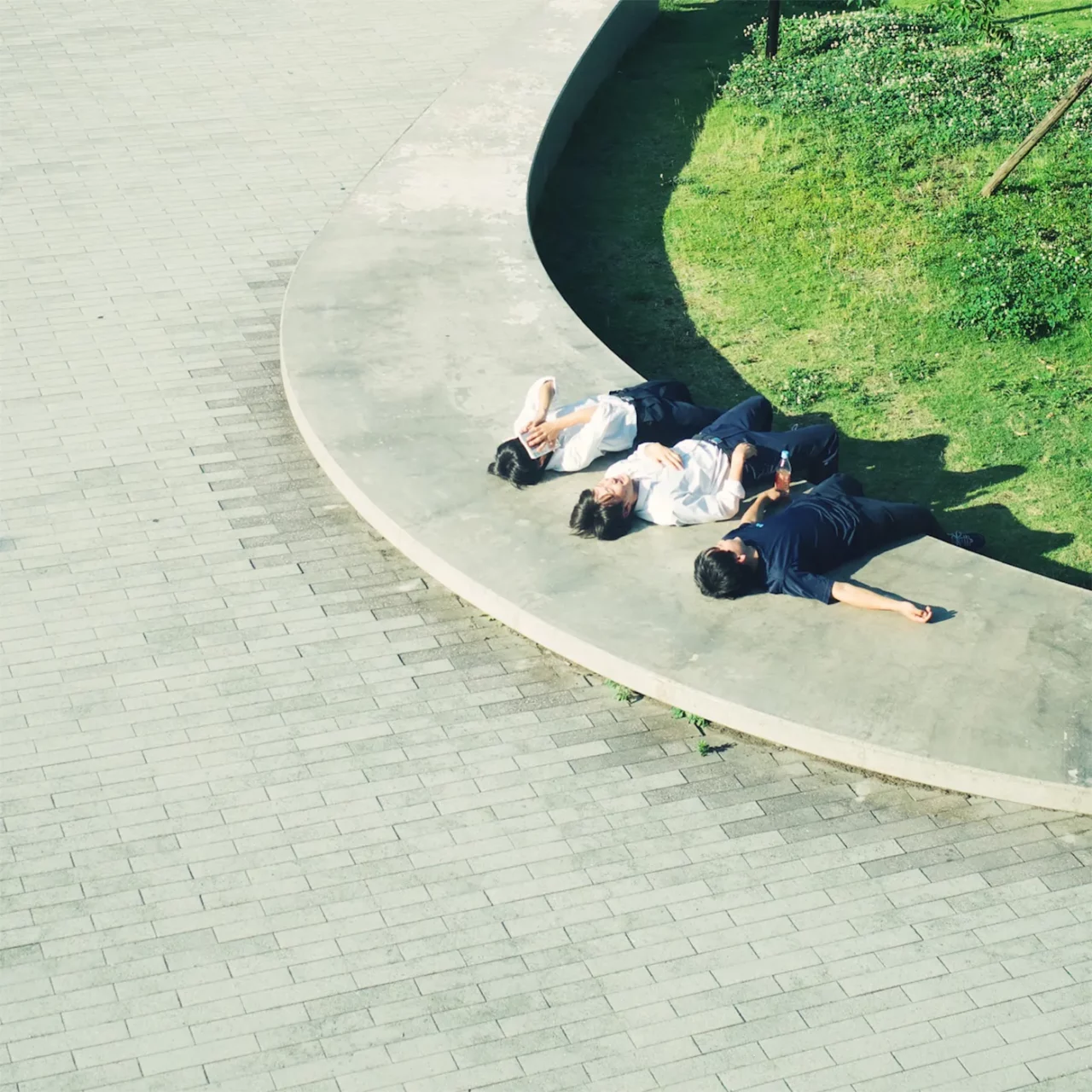
February 19, 2025(Wed) Release
https://jvcmusic.lnk.to/tomodachinouta
Available on major streaming services and download sites!
Music streaming services: Apple Music, Spotify, YouTube Music, LINE MUSIC, Amazon Music, Deezer, AWA, Rakuten Music, KKBOX





